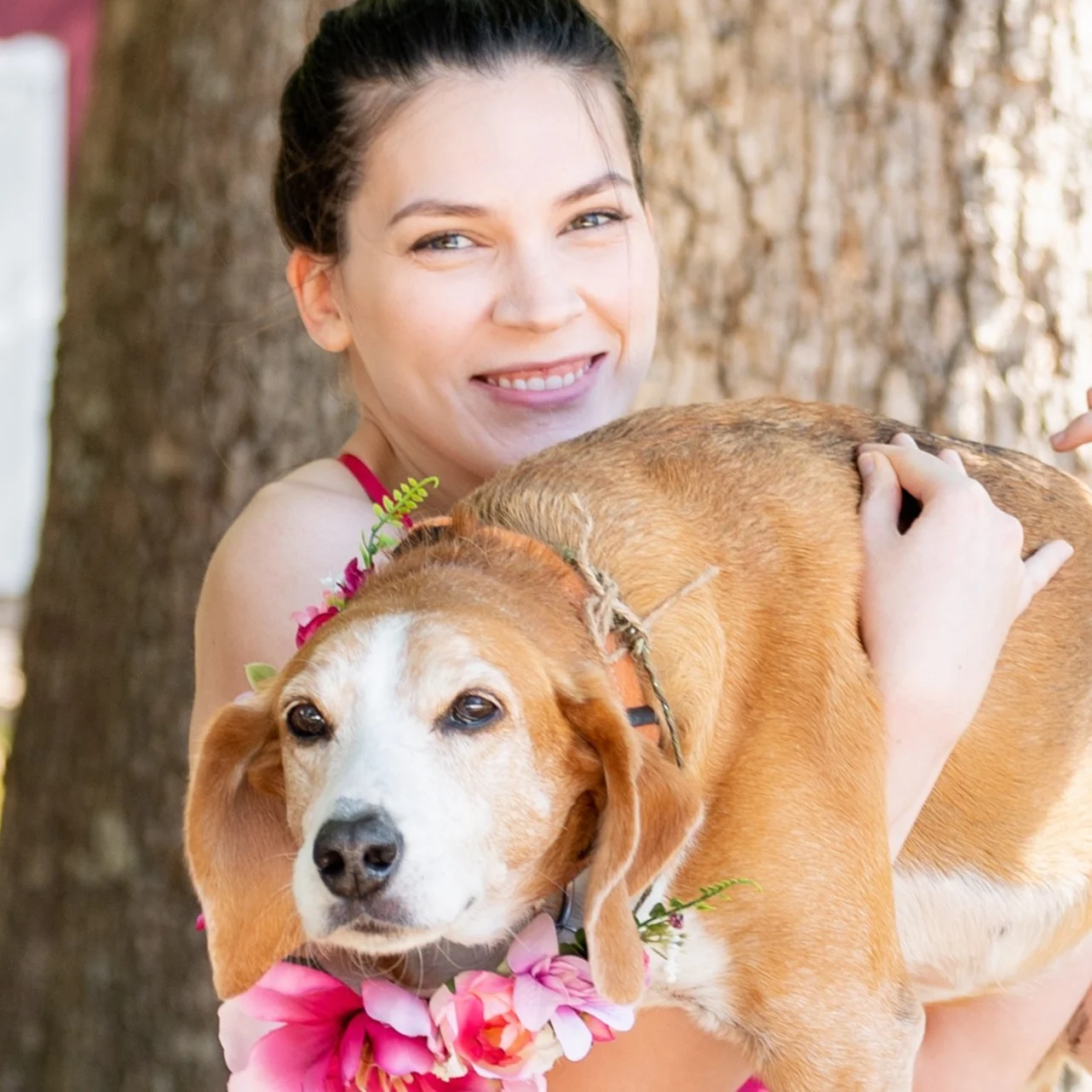What Is Pet Insurance and What Does It Cover?
As the cost of veterinary expenses rises, so has the interest in pet insurance. But what does it cover and how much does it cost? Get the scoop here.

Have you been curious about how you can invest in your pet’s health? Between inflation, expanding technology, and regional pricing differences, you may have noticed that the cost of your pet’s healthcare is rapidly rising. As a result, pet insurance is quickly becoming one of the fastest-growing pet products for people looking to protect their pet and their wallet. In fact, over 3 million pets were insured in the United States by the end of 2020!
But what exactly is pet insurance, and how does pet insurance work?
Let’s take a look at the ins and outs of pet insurance, including tips and tricks for deciding if it’s right for you and your pet.
How Does Pet Insurance Work?
So, what is pet insurance? Pet insurance is a type of plan where you pay a monthly or annual premium to receive reimbursement for a percentage of your pet’s eligible veterinary bills. Since veterinarians do not accept insurance like human doctors, pet insurance works on a reimbursement basis. With AKC Pet Insurance (underwritten by Independence American Insurance Company), this means you can go to any licensed vet you want, as long as they are in the United States or Canada. You pay your veterinarian as usual, get an itemized invoice, and submit a claim form. With an accident and illness plan, AKC Pet Insurance will reimburse you for eligible expenses once your deductible has been met. Reimbursement is subject to coinsurance amount and maximum policy limits.
Policies can be broken down into three coverage areas: accident & illness, wellness, and accident-only. The most popular plan you will come across is coverage for the diagnostics and treatment of accidents and illnesses, where policyholders can maximize the number of conditions eligible under their coverage. Accident-only policies only offer coverage for eligible expenses related to an accident. Many choose this type of policy because pet insurance premiums often increase as pets age, so the company you select may only offer accident-only coverage if your pet is nine years of age or older.
Do any pet insurance companies cover pre-existing conditions? In most cases, pet insurance will not cover veterinary care costs related to pre-existing conditions. However, AKC Pet Insurance is the only major brand offering coverage for incurable pre-existing conditions*. With AKC Pet Insurance, if you have an accident and illness policy continuously for 365 days, you may be eligible for future reimbursement on conditions that were previously denied as pre-existing.
What Types of Conditions Are Eligible?
The types of conditions that are eligible for coverage will differ depending on the company you choose. While many people will immediately think of costly conditions like cancer and broken bones, you may not realize you can get coverage for “smaller,” more commonplace events, like an ear infection.
Here’s a list of conditions that may be covered by AKC Pet Insurance’s Accident and Illness Coverage:
Hyperthyroidism
Allergies
Toxin Ingestion
Digestive Issues
ACL Injuries**
Broken Bones
IVDD
UTIs
How Do I Use Pet Insurance?
Here’s an example: Say you have an accident and illness plan for your pet who, after their waiting periods have passed, comes down with an ear infection. Since we know our policy is most likely reimbursement-based, let’s look at how you can submit your claim for your pet’s visit.
The first step is paying the total invoice for your pet’s veterinary service and keeping a copy of the itemized invoice. If you’re able, we recommend also getting a copy of your pet’s veterinary records, as your pet insurance company will likely need these to determine the onset date of your pet’s condition.
Next, you’ll fill out a claim form and send it over to your pet insurance company so that your claim can be processed. These forms will typically ask you to note when the condition started, when the date of service for your veterinary visit was, and what condition your pet had. With AKC Pet Insurance, you can download a claim form to send to us by fax, email, or physical mail, or you can fill out the form directly in your online customer portal. As we described above, we recommend attaching your pet’s medical records if this is your first claim, so that your company’s claim adjusters can verify your pet’s medical information.
Once your claim is received, you may get a confirmation notice from your pet insurance company that processing is underway. With AKC Pet Insurance, you can check the status of your claim in your customer portal. While this usually only takes a few days, if your processor needs to request medical records or other information, this process may take longer. In the meantime, you can snuggle up with your furry friend and help them heal!
After your claim has been processed, you’ll receive physical mail or an email (depending on chosen delivery method) providing you with an explanation of benefits and a reimbursement check if your pet’s deductible has been met and the expense is covered under your plan. Many companies now offer direct deposit so that your reimbursement hits your bank account even faster!

Every Dog and Cat Deserves the Pet Insurance of Champions
Get prize-winning care for your pets.
What Type of Pet Insurance Should I Get?
Knowing what type of policy is right for you and your pet will depend on your specific pet and situation. Here are a few questions to think about when selecting coverage:
How much do I typically spend on my pet each year?
What kinds of conditions do I want to be covered?
How much money am I able to put towards my premium?
Is my pet’s breed pre-disposed to any conditions I may encounter in the future?
Suppose your pet is generally healthy and you mainly want assistance covering their routine veterinary care. In that case, you may be best suited for a standalone wellness plan or may consider adding a wellness plan to an accident and illness policy. Keep in mind that many wellness plans run an annual schedule of benefits, meaning that there is a price cap for how much you can be reimbursed each year, as opposed to the coinsurance you would have on other pet insurance plans. Comparing the costs of your routine care to how much your wellness plan contributes will also help you decide if this type of plan will be valuable for you.
Most pet owners choose an accident and illness policy to maximize their coverage for any unforeseen events. No matter which type of policy you choose, make sure to become familiar with the terms and conditions before you sign up. Many policies have exclusions for certain conditions, such as those caused by parasites and related to dental health, that are ineligible for reimbursement on most accident and illness plans.
While you may not think you need any add-ons for your policy, some conditions or treatments are only eligible if you have additional coverage. For example, certain hereditary conditions may require a specific add-on. If you have questions about the coverage of a policy, we recommend reaching out to your customer care team or sales team to discuss the details of the policy.
How Much Does Pet Insurance Cost?
The age, breed, location, and chosen coverage for your pet will directly influence the cost of your monthly or annual premium. At AKC Pet Insurance, you can use our quote tool or call our sales team to get a quote for your chosen type of coverage. In addition, because our plans are customizable, you can adjust the deductible, coinsurance, or policy limits of your quoted coverage to create a premium that meets your budget.
As we mentioned above, factors outside of your chosen coverage can affect the cost of your policy’s premium. For example, veterinary technology has vastly expanded over the past decade, but costs have also risen along with these advances. States with a higher cost of living may experience higher veterinary costs than those in other states, which is why the premium may be increased to match the cost of living.
Another reason veterinary costs are rising is the increasing cost of pet medications. No one wants to choose between the quality of life of their pet and facing a huge veterinary bill for a needed prescription. Luckily, pet insurance may be able to reduce the financial burden by covering some or all of the costs depending on the policy you choose.

Every Dog and Cat Deserves the Pet Insurance of Champions
Get prize-winning care for your pets.
Is Pet Insurance Worth It?
No one can predict the future, but you can be prepared for when disaster strikes. For most people, pet insurance can be a wise investment that helps cover the cost of expensive veterinary treatments, medications, and much-needed medical procedures. No matter what happens, you can have peace of mind knowing that your pet can receive the best possible care in the event of a medical emergency. Our recommendation: do your research and choose a policy that meets your needs and budget. Check out our quote tool or call us at 866-725-2747 to learn more about our coverage and design a policy fit for you and your pet!
* Not available in all states.
** Orthopedic conditions are covered after a 6-month waiting period.

As an avid fan of all things that meow or bark, Jodie uses her expertise in human and animal health to have a positive impact on the well-being of pets and their owners. Jodie lives in Durham, NC with her cat, "Noodle", and two dogs, "Lilly" and "Clementine".
READ MORE ARTICLES

